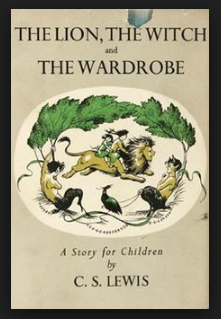 I owe my faith first of all to God, who is the “author and perfecter” of my faith. But along the way the Author of my faith has used a lot of human authors to deepen that faith. Following, is a list of five novels that have informed and shaped my faith. They are not perfect and they are only some of the books that God has used in my life but I commend them to your consideration. The Lion, the Witch, and the Wardrobe, C.S. Lewis Lewis famously said that Aslan, the great lion in the title, was not exactly meant to be Jesus, but was written in such a way that when Lewis’s young readers did meet Jesus they would “recognize” him. My father read this book to me when I was a child. I read it again in my teens. And I have read it through a couple of times now to my own children. And the betrayals still sting and the magic still thrills. Because of this book my relationship with Jesus is more personal than it would be otherwise. Takeaway quote: “Safe?” said Mr. Beaver; “don’t you hear what Mrs. Beaver tells you? Who said anything about safe? ‘Course he isn’t safe. But he’s good. He’s the King, I tell you.” 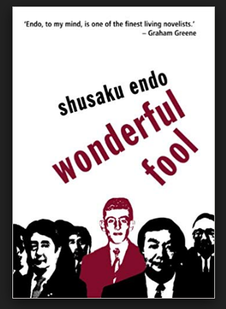 Wonderful Fool, Shusako Endo Much less famous than the later Silence, this is my favorite of Endo’s novels. As with Silence, Wonderful Fool follows the story of a devout Westerner in Japan, cataloging the improbably ways in which a man deemed ill-suited to mission work might accomplish that work by being a wonderful fool. All my life as a believer I’ve grappled with what it would look like if I finally and decisively chose to live with unrestrained devotion to the Jesus of the Sermon on the Mount. Wonderful Fool has given me a picture of what that might look like and a reason to keep aiming for it. Takeaway quote: For the first time in her life Tomoe came to the realization that there are fools and fools. A man who loves others with an open-hearted simplicity, who trusts others, no matter who they are, even if he is deceived or even betrayed-- such a man in the present-day world is bound to be written off as a fool. And so he is. But not just an ordinary fool. He is a wonderful fool. He is a wonderful fool who will never allow the little light which he sheds along man's way to go out. 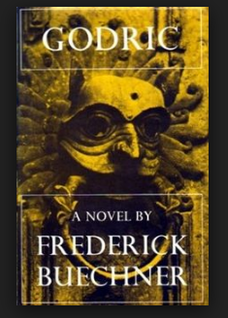 Godric, Frederick Beuchner The only Vermont author on this list, Beuchner has one of the strongest evangelical followings of any non-evangelical novelist. And reading a novel about a Catholic mystic of the Middle Ages written by a Mainline Protestant of the present time is an interesting exercise for an evangelical. Any number of Beuchner’s novels could have been on this list, but what Godric in particular gave me was an appreciation of how the “earthen vessels” Paul refers to in 2 Corinthians 4:7, in which our treasures are hid, are just dirt. We are just dirt. And that is jarring but not inconsistent with our identity as treasure bearers. Beuchner’s heros are uncomfortably earthy, I will warn. But they also aspire to holiness. Takeaway quote: Lust is the ape that gibbers in our loins. Tame him as we will by day, he rages all the wilder in our dreams by night. Just when we think we're safe from him, he raises up his ugly head and smirks, and there's no river in the world flows cold and strong enough to strike him down. Almighty God, why dost thou deck men with such a loathsome toy? 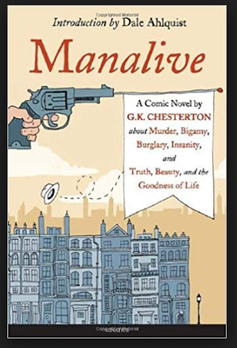 Manalive, G.K. Chesterton A book length exposition of a notion expressed in his seminal Orthodoxy, Chesterton’s allegorical depiction of Innocent Smith’s adventures and subsequent “trial” shares many of its authors best qualities. It is robust and fun-loving, endued with wonder and irrepressibly wry. It is not the best novel ever written. There are problems with it. But as an antidote for modern ennui and an important tonic for modernism it is indispensable. (Warning - Chesterton’s depiction of a Jewish character is uncomfortable because of language we might interpret as anti-semitic. I have examined Chesterton’s life and writings and come to the conclusion that he was not an anti-semite, but these remain uncomfortable passages.) Takeaway quote: Madness does not come by breaking out, but by giving in; by settling down in some dirty, little, self-repeating circle of ideas; by being tamed. 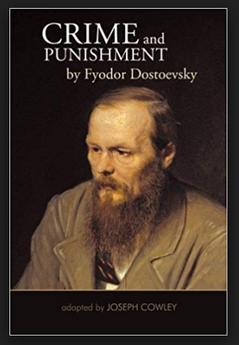 Crime and Punishment, Fyodor Dostoevsky There is simply no more harrowing depiction of sin and its consequences than Crime and Punishment. Read it and you will be horrified to find yourself hiding behind the same door and burying the evidence beneath the same rock with the book’s tormented protagonist. And at the same time the book conveys a grace the more magnificent for being occasioned by a sin we’ve been made to feel with such vividness. Reading Crime and Punishment feels a lot like experiencing Walker Percy’s “eucatastrophe,” and when you’ve turned the last page you will breathe a sigh of relief. Takeaway quote: Man grows used to everything, the scoundrel One final note.
Not one of these authors is what we would consider an Evangelical Christian, with the exception of Lewis (with a few qualifications.) And Lewis was an Episcopalian. Other authors whose books might have made it onto the list would include J.R.R. Tolkien, Aleksandr Solzhenitsyn, Graham Greene, George McDonald, and Alan Paton. Not a conventional Evangelical on the list. I’m not entirely sure what to make of that. But, if nothing else, it means that I should be grateful for the other branches of the Christian church for what they have to contribute to my own. And it causes me to ask what about my own faith tradition might be equally valuable to the other streams of the Christian faith.
0 Comments
Leave a Reply. |
Furnace Brook Wesleyan Church Blog
|
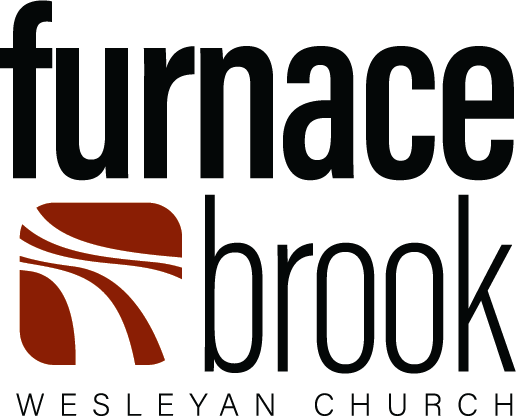
 RSS Feed
RSS Feed